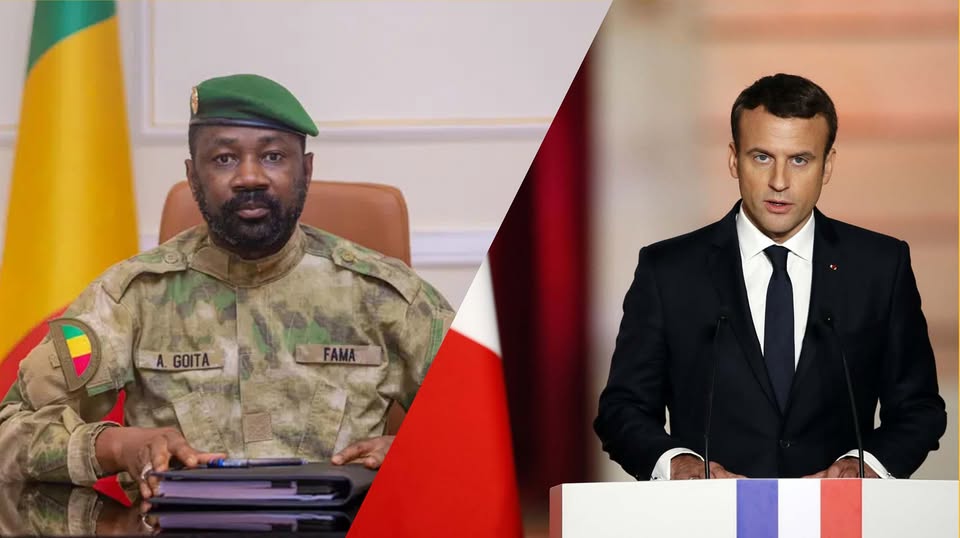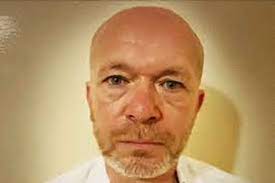France in diplomatic row with Mali over arrest of embassy staff in alleged coup plot

The arrest of a French embassy staff member in Bamako has plunged Franco-Malian relations into yet another crisis, underscoring the human cost of escalating mistrust between Mali’s ruling junta and its former colonial power.
On Thursday, Mali’s transitional authorities accused Yann Vezilier, an accredited French diplomat, of engaging in covert activities with intelligence services to destabilize the state. France, in swift response, denounced the allegations as “unfounded” and “unjustified,” insisting that Vezilier’s detention violates international norms, including the Vienna Convention on Consular Relations.

Paris has demanded his immediate release and opened urgent talks with Bamako. “Discussions are underway to clear up any misunderstanding,” France’s foreign ministry said, while reaffirming that the diplomat was covered by diplomatic immunity. This scenario, showcases a diplomatic rift with human consequences, as the arrest comes at a moment of deep political uncertainty in Mali.
Since 2020 when power was seized, and in 2021 when a consolidated control asserted through a second coup, the junta led by Colonel Assimi Goïta, has ruled with a heavy hand, citing security threats and sovereignty as justification for postponing elections.
Though, for ordinary Malians, the standoff between Bamako and Paris is not just a diplomatic quarrel. It feeds into daily struggles that are causing a rising food costs, limited humanitarian access and growing insecurity in rural areas where Islamist insurgents and armed militias remain active.
“People here feel trapped,” said Mariam Diallo, a teacher in Bamako. “The government tells us foreign states are destabilizing the country, but meanwhile, our children face violence, poverty, and no future.”
Presumably, the Mali’s junta narrative of foreign meddling, has framed the arrest of Vezilier as proof of external interference. In a televised statement, officials accused him of attempting to recruit soldiers and civil society figures into a coup plot. They claimed that “foreign states” were determined to undermine Mali’s sovereignty at a time when dozens of Malian soldiers were themselves arrested on suspicion of conspiring against the government.
This narrative plays into a broader theme the junta has advanced since breaking ties with Paris in 2022 and forging closer military and political links with Moscow. By accusing Western diplomats of destabilization, Bamako seeks to rally nationalist sentiment and frame its reliance on Russian security support as a necessary defense of sovereignty.
Yet this framing comes at a cost. Independent activists and rights defenders in Mali fear that the rhetoric of “foreign plots” is increasingly used to justify the silencing of dissent.
Conversely, Mali’s troubles stretch far beyond this latest arrest. It has been a decade of instability. The country has endured more than a decade of turmoil, beginning with the 2012 rebellion in the north, which was swiftly hijacked by Islamist groups. French troops initially intervened in 2013 to stem the insurgency, but the security crisis only deepened, spreading to the center of the country and into neighboring Burkina Faso and Niger.
The military seized power in Bamako claiming civilian leaders had failed to address insecurity. Yet years later, violence continues unabated, leaving more than 350,000 Malians displaced and millions in need of humanitarian aid. In rural areas, farmers abandon their fields under threat of jihadist attacks, while aid convoys are often restricted by government suspicion of foreign NGOs.
France’s influence, once dominant, has waned as it faces strained ties and shifting alliances. Expelled from Mali, French troops redeployed elsewhere in the Sahel, while Russian paramilitary groups, including the Wagner Group, moved in to fill the void. The shift redefined Mali’s external alliances but did little to ease the burden on civilians caught between military crackdowns, jihadist threats, and poverty.
Today, the arrest of a French diplomat symbolizes more than a legal dispute. It represents the breakdown of a decades-old relationship that once tied Bamako to Paris through aid, military cooperation, and shared cultural links.
In all, the ongoing crisis raises pressing humanitarian concerns. With aid agencies already facing access restrictions, diplomatic rifts risk further isolating Mali from international partners. For families displaced by conflict, cuts in humanitarian funding translate into empty grain stores and children pulled out of school.
“Diplomatic tensions always trickle down to ordinary people,” said Abdoulaye Konaté, a civil society activist in Mopti. “When governments fight, it is the poor who suffer first. Borders close, aid stalls, and insecurity worsens.”
As Paris and Bamako negotiate the fate of Yann Vezilier, the real question looms larger on the road ahead; asking, how much more instability can Malians endure before pathways to peace and democracy reopen?
France demands the release of its diplomat, Mali insists on defending its sovereignty, and Russia’s shadow looms in the background. In this tug-of-war, ordinary Malians remain at the center, struggling for survival in a state where politics, power, and geopolitics collide with daily life.
For now, the arrest of a single diplomat is more than a diplomatic dispute. It is a stark reminder of how fragile Mali’s stability remains, and how the weight of political rivalries continues to fall on the shoulders of her people.






